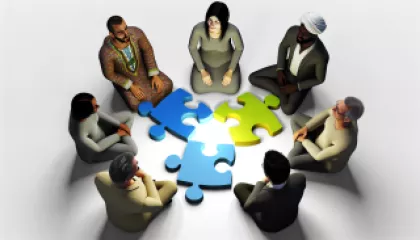Willkommen! Ich bin Melanie Dobler, und es ist mir eine Ehre, Sie bei Ihrer persönlichen Reise zu begleiten. In unserer gemeinsamen Zeit schaffe ich einen Raum des Friedens und der Heilung, in dem Sie sich sicher und verstanden fühlen können.
Mit 27 Jahren Erfahrung habe ich gelernt, wie wichtig es ist, ein tiefes Verständnis für die Einflüsse zu entwickeln, die unsere Persönlichkeit formen – insbesondere die Rolle, die Eltern dabei spielen. Oft tragen wir unbewusst Glaubenssätze und Verhaltensmuster mit uns, die von unseren Eltern geprägt wurden. Es ist mein Anliegen, Ihnen zu helfen, diese Muster zu erkennen und gegebenenfalls zu verändern, um Ihr authentisches Selbst zu entdecken und zu entfalten.
Ein weiterer Aspekt meiner Arbeit ist die Unterstützung beim Überwinden der Opfermentalität. Viele Menschen finden sich in einer Spirale von Schuldzuweisungen und Hilflosigkeit gefangen, was oft zu einem Gefühl der Machtlosigkeit führt. Gemeinsam können wir daran arbeiten, diese Denkweise zu transformieren und Ihr Leben in die Hand zu nehmen, sodass Sie wieder die Kontrolle über Ihre Entscheidungen und Ihr Schicksal erlangen.
Ich lege großen Wert darauf, eine Atmosphäre der Ruhe und Gelassenheit zu schaffen, in der Sie ohne Vorurteile oder Druck erkunden können, wer Sie sind und wer Sie sein möchten. Jeder Mensch ist einzigartig, und so sind auch die Herausforderungen, denen wir gegenüberstehen. Ich glaube fest daran, dass jeder die Fähigkeit hat, durch persönliche Entwicklung und Selbstreflexion Wachstum und Heilung zu erfahren.
In unseren Sitzungen stehe ich Ihnen als einfühlsame Zuhörerin zur Seite, die auf Ihre individuellen Bedürfnisse eingeht und maßgeschneiderte Ansätze anbietet, um Ihre Ziele zu erreichen. Dabei nutze ich Techniken, die sowohl bewährt als auch innovativ sind, um Ihnen die bestmögliche Unterstützung zu bieten.
Meine Arbeit ist von einer tiefen Überzeugung geprägt, dass der Weg zur inneren Freiheit und Selbstannahme für jeden zugänglich ist. Gemeinsam können wir daran arbeiten, Hindernisse aus dem Weg zu räumen und einen klaren, friedlichen Pfad in eine erfüllte Zukunft zu ebnen.
Ich lade Sie herzlich ein, sich mir anzuschließen, um Ihre bisherige Lebensgeschichte neu zu schreiben und die Kraft der Veränderung zu erleben. Lassen Sie uns gemeinsam herausfinden, wie Sie Ihr Potenzial vollständig ausschöpfen können, indem wir den Einfluss Ihrer Vergangenheit verstehen und die Muster durchbrechen, die Sie zurückhalten.
Ich freue mich darauf, Ihnen in dieser spannenden Zeit Ihres Lebens beizustehen und mit Ihnen einen positiven Wandel einzuleiten. Lassen Sie uns diesen Weg der Entdeckung und Transformation gemeinsam beschreiten.

